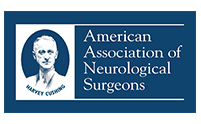1) What makes Dr. Armin different than other neurosurgeons?
Dr. Armin believes in treating his patients like his own family. He prides himself in treating patients with compassion and respect, and advocates fully informing his patients of their diagnosis and treatment options before they make any important medical decisions. For this reason, he is a strong proponent of taking a thorough history, providing detailed explanations, and reviewing your actual images with you so he can partner with you to get you the proper care you deserve. He believes in offering both non-surgical and surgical treatment options when appropriate. Should you require surgery, Dr. Armin is also fellowship trained in minimally invasive surgery.
2) If I’m not interested in surgery at this time, can Dr. Armin still help me?
Yes! Although, we are a Neurosurgical practice, the majority of our patients do NOT require surgery, and can be treated conservatively using other modalities. Dr. Armin can help provide you with all your treatment options, and guide you through an effective treatment regimen even if you do not need surgery. Dr. Armin is a strong believer in multimodal treatment plans, and is happy to provide referrals to other specialists as well.
3) What are the advantages of minimally invasive surgery?
Minimally invasive surgery refers to brain and spine procedures aimed at minimizing injury to surrounding soft tissue including muscles and ligaments. These surgeries can typically be done through much smaller incisions than traditional surgeries. The potential advantages of minimally invasive procedures include:
- Small surgical scars
- Decreased blood loss during the surgery
- Decreased postoperative pain
- Reduced risk of infections
- Shorter hospital stay
- Quicker recovery and less down time
- Quicker return to work and normal activities
Dr. Armin is fellowship trained in minimally invasive spine surgery and can help you determine if you are a candidate for this state of the art surgical approach.
4) Do you accept walk in patients?
We strive to give each patient the time and attention they need during their appointment. We pride our office in being thorough and comprehensive. As a result, we ask that you call ahead to schedule an appointment, so that Dr. Armin can have ample time to review all your information and images with you during your visit.
5) Do I need a referral to see the doctor?
Most of our patients are referred by other physicians including primary care physicians, neurologist and pain management specialists. However, we also do see some patients who self-refer or are referred by Dr. Armin’s established patients. You may call our office prior to scheduling a visit if you have any further questions.
6) What insurances do you accept?
We accept most insurance plans including PPOs, HMOs and Medicare. Please call our office with any additional questions.
7) What other languages does your office speak?
Our office is fluent in English, Spanish and Farsi.
8) What will my first visit be like?
Please bring ALL imaging CDs and films, drivers license, insurance card, and a list of your current medications. New patient intake forms may be filled out in our office or online prior to your visit to save time. We also encourage our patients to bring a family member or close friend to their appointment should the patient need support or assistance for any reason. During your first visit, Dr. Armin will conduct a thorough history and neurologic examination, focused on the reason for your visit. He will also review your actual images with you as well as your treatment options. Together you will determine the best course of action for your medical condition, including conservative and non-surgical management, as well as any necessary surgical interventions.








